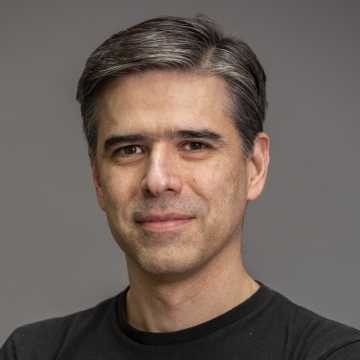
|
Rodrigo Fonseca Microsoft Corp., USA Keynote Title: Research Challenges for a Future Serverless Cloud |
Abstract
All else being equal, it is a rational choice for an increasing number of cloud applications to be serverless: there is no need to think about allocating, configuring, scaling, and maintaining infrastructure, and you only pay for what you use. We envision a future in which only niche applications will need to worry about the abstraction of a server. However, there are many challenges to be solved, both for developers and for providers, to realize this vision. In this talk, I will discuss some of these challenges, work that we have been doing to address them at Azure Systems Research, and future directions.
Biography
Rodrigo Fonseca is a senior principal researcher at Microsoft and leads the Azure Systems Research (AzSR) group. The group is focused on innovative systems research, broadly construed, to improve the efficiency and utility of the Azure cloud, while maintaining the security and reliability expected from a public cloud offering. He is broadly interested in cloud computing, operating systems, distributed systems, and networking. He obtained his PhD from UC Berkeley, and prior to Microsoft was an Associate Professor at Brown University.

|
Lorenzo Alvisi Cornell University, USA Keynote Title: Orderrr! State Machine Replication in the Age of Blockchains |
Abstract
Mistrust over traditional financial institutions is motivating the development of decentralized financial infrastructures based on blockchains. In particular, consortium blockchains (such as the Linux Foundation Hyperledger and Facebook’s Diem) are emerging as the approach preferred by businesses. At the core of these blockchains is a technique borrowed from fault-tolerant computing and made practical in seminal work by Barbara and her students: Byzantine fault-tolerant state machine replication. It guarantees that the blockchain will operate correctly even if as many as a third of the contributing parties are bent on cheating. But, sometimes, going a-borrowing is going a-sorrowing. In particular, the specification of Byzantine-tolerant state machine replication is not designed to recognize, never mind prevent, the fraudulent manipulation of the order in which transactions are processed.
I will discuss a way to expand the specification to give it a fighting chance. But is it possible to completely eliminate the ability of Byzantine parties to engage in order manipulation? What meaningful ordering guarantees can be enforced? And at what cost?
Biography
Lorenzo Alvisi is the Tisch University Professor of Computer Science at Cornell University. Prior to joining Cornell, he held an endowed professorship at UT Austin, where he is now a Distinguished Professor Emeritus. Lorenzo received his Ph.D. in 1996 from Cornell, after earning a Laurea cum Laude in Physics from the University of Bologna. His research interests span theory and practice of distributed computing, with a focus on scaling strong consistency and dependability guarantees. He is a Fellow of the ACM and IEEE , an Alfred P. Sloan Foundation Fellow, and the recipient of a Humboldt Research Award, an NSF Career Award, and several teaching awards. He serves on the editorial boards of ACM TOCS and Springer’s Distributed Computing, and on the steering committee of Eurosys and SOSP. Besides distributed computing, he is passionate about classical music and red Italian motorcycles.